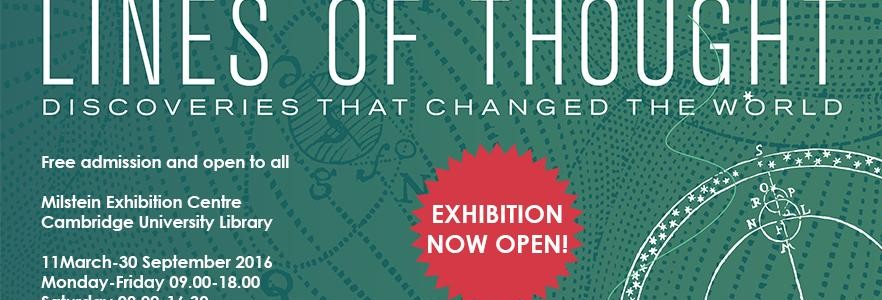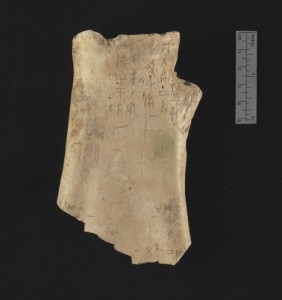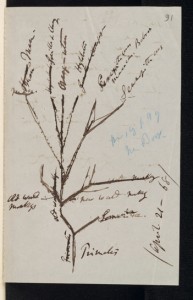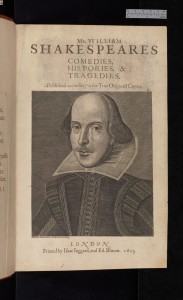
Lines of Thought exhibition now open!

An example of a bone used some three thousand years ago to divine the future, bearing the earliest known samples of Chinese script. CUL 55
The University library’s major free public exhibition to celebrate its 600th anniversary, Lines of Thought: Discoveries that changed the world,is now open in the Milstein Exhibition Centre. The exhibition encompasses 4000 years of recorded thought from some of the library’s oldest written objects, clay tablets and oracle bones, to the 21st-century decoding of the human genome. It investigates, through six distinct themes, how Cambridge University Library’s millions of books and manuscripts have transformed our understanding of life here on earth and our place among the stars.
The exhibition opens with a display of items relating to the earliest origins of the library, including a chest borrowed from the office of the Registrary. In the medieval university, books would have been stored in such chests along with other treasures. The six Lines of Thought featured in the exhibition are: From clay tablets to Twitter feed (Revolutions in human communication); The evolution of genetics (From Darwin to DNA); Beginning with the word (Communicating faith); On the shoulders of giants (Understanding gravity); Eternal lines (Telling the story of history) and Illustrating anatomy (Understanding the body).

Darwin’s primate tree of 1868 in which he first controversially proposed that man and other primates share a common ancestor. MS DAR 80:B91
Items on display include Isaac Newton’s own copy of the first edition of Principia Mathematica; Darwin’s first pencil sketch of species theory and his primate tree; the Nash papyrus, a copy of the Ten Commandments dating to the 2nd century BCE; copies of the Gutenberg Bible and the First Folio of Shakespeare, and the oldest surviving catalogue of the library, dating from 1424.
The exhibition is open Monday to Friday 09.00-18.00 and Saturday 09.00-16.30, except for the Library’s holiday closed days until Friday 30 September 2016.

The iconic portrait of Shakespeare by Martin Droeshout, printed at the opening of the 1623 ‘First Folio’. SSS.10.6
For those who can’t make it to Cambridge or who want to enjoy the exhibition again, a virtual exhibition includes high resolution images of all the objects on display plus additional items.
A special Lines of Thought theme in Cambridge Digital Library offers fully digitised copies of many of the books from the exhibition.
To accompany the exhibition, a free downloadable iPad app, Words that changed the world, has been created which offers digital copies of six of the most iconic items from the collection, one representing each theme, together with video introductions and contextual information provided by expert scholars and curators.
